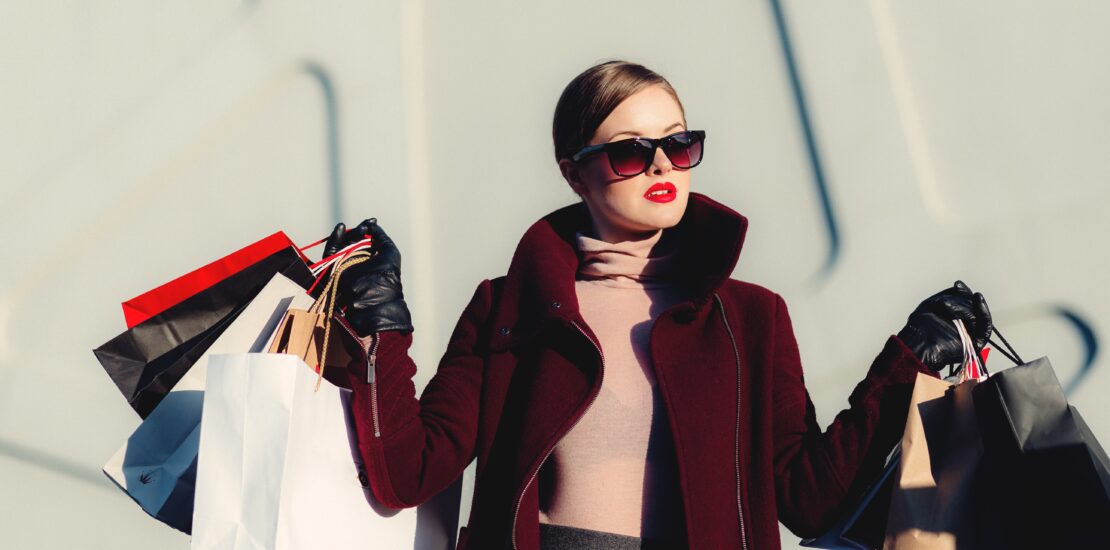- November 19, 2023
- Posted by: Merandi Global
- Categories:

The luxury retail industry has undergone a significant transformation in recent years, driven by the ever-evolving digital landscape. In fact, research by Mckinsey suggests that 20% of luxury goods sales are expected to be from online channels by 2025 and to keep up with this change, brands are rapidly moving towards digital transformation. With the rise of e-commerce, mobile technology, and changing consumer preferences, luxury brands have had to adapt and embrace new digital trends to stay competitive. In this blog post, we will explore some of the latest digital trends that are reshaping the luxury retail industry and revolutionizing the way brands connect with their affluent customers.
1. Personalized Online Experiences
Luxury brands are leveraging data and advanced analytics to deliver personalized online experiences to their customers. By collecting and analyzing customer data, brands can tailor their website content, product recommendations, and promotional offers to match individual preferences. Personalization creates a sense of exclusivity and enhances customer satisfaction, ultimately driving higher conversion rates and customer loyalty. For instance, most brands today work with collecting customer data and delivering personalized content in terms of emails, and chatbot messages, etc. by delivering top-class customer service and experiences.
2. Virtual and Augmented Reality (AR)
Virtual and augmented reality technologies are transforming the way consumers engage with luxury products. High-end brands are utilizing VR and AR to offer immersive experiences, enabling customers to virtually try on products, visualize them in different settings, and even participate in virtual fashion shows. These technologies not only enhance the shopping experience but also provide brands with an opportunity to showcase their craftsmanship and attention to detail. For instance, Chanel has been working with another company to deliver a virtual fitting-room experience to their customers for a personalized customer experience by leveraging AR.
3. Social Media Influencer Partnerships
Luxury brands are increasingly collaborating with social media influencers to reach a wider audience and create authentic connections with potential customers. Influencers with a strong following and a relevant target audience can effectively showcase luxury products and lifestyle, generating interest and driving sales. By leveraging influencer partnerships, luxury brands can tap into the power of social media and engage with consumers in a more relatable and organic manner.
For instance, Dior was the The Gold Winner for Best Beauty Campaign at the 2020 Influencer Marketing Awards where they launched their campaign “67 Shades of Dior”. This was a campaign focused on introducing their new foundation line in the market partnered with a marketing agency called Buttermilk.
4. Omnichannel Retailing
In an effort to provide a seamless customer experience, luxury retailers are adopting an omnichannel approach, integrating their online and offline channels. Customers now expect a consistent experience across various touchpoints, whether it’s browsing online, visiting a physical store, or making a purchase through a mobile app. Most top luxury brands like Chanel, Dior are investing in technologies that enable them to synchronize inventory, offer click-and-collect options, and provide personalized recommendations regardless of the channel.
5. Sustainable and Ethical E-commerce
As sustainability becomes increasingly important to consumers, luxury brands are focusing on environmentally friendly practices in their e-commerce operations. From using eco-friendly packaging materials to implementing recycling initiatives, luxury retailers are incorporating sustainability into their digital strategies. Additionally, brands are emphasizing transparency in their supply chains, showcasing ethical sourcing and production processes to resonate with conscious consumers. Furthermore, a combined research of Statista and Vogue Business highlighted that Chanel came out to be the most sustainable brand as of 2022.
The digital landscape continues to shape the luxury retail industry, and brands must adapt to stay relevant and meet the evolving expectations of their affluent customers. By embracing personalized online experiences, virtual and augmented reality, influencer partnerships, omnichannel retailing, and sustainable e-commerce practices, luxury retailers can enhance customer engagement, increase brand loyalty, and ultimately drive sales in the digital era. As technology continues to advance, it will be crucial for luxury brands to stay agile and innovative in their approach to thrive in the ever-changing digital landscape.

